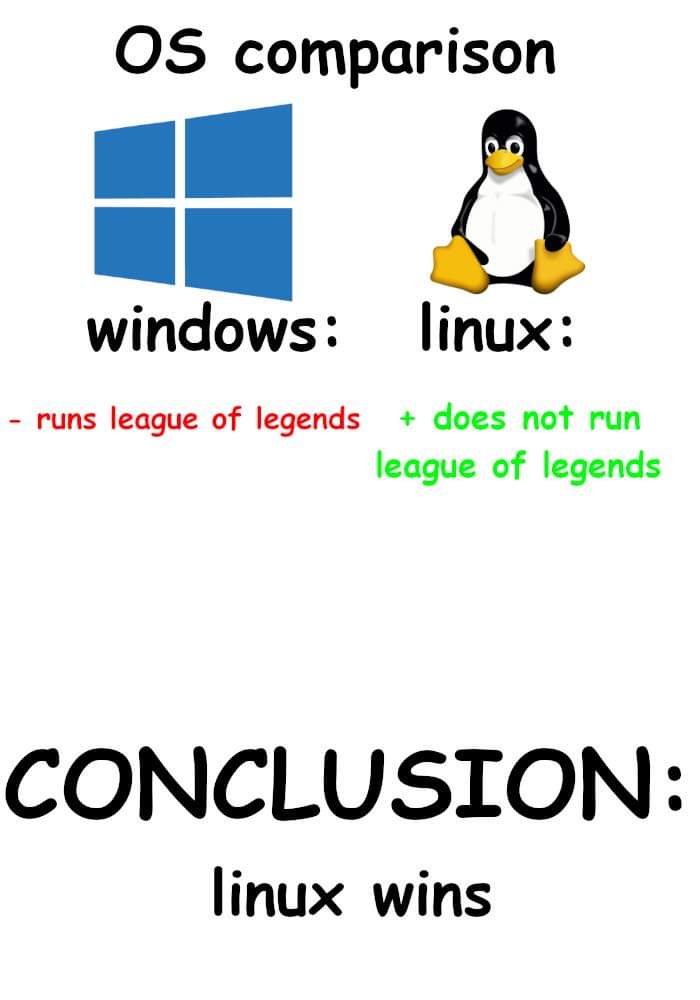this post was submitted on 27 Mar 2024
1427 points (97.0% liked)
Memes
45727 readers
1078 users here now
Rules:
- Be civil and nice.
- Try not to excessively repost, as a rule of thumb, wait at least 2 months to do it if you have to.
founded 5 years ago
MODERATORS
you are viewing a single comment's thread
view the rest of the comments
view the rest of the comments

I run Void with runit.
I've tried to completely avoid systemd, and so far I think I've managed. It's still a pain in the ass, because a lot of software depends on it.
As an upside, startup time on my old lappy went from 2+ minutes on barebones Arch with systemd to just under 40 seconds on Void with runit.
I don't even care about the boot times.
Perhaps because I don't use DEs my PCs boot up quickly, and servers aren't supposed to be rebooted outside their maintenance windows. So why would I care about pArAlLeL bOoTiNg.
Oh well, I'm just an old man yelling at clouds.
The thing about parallel booting is it's only faster in systems with lots of cores, and the overhead of the parallelized code is sometimes enough to negate the benefits in older processors.
My machine is a Core 2 Duo lappy, which allows me to run most modern programs cheaply. However, it's slow (even though I don't use DEs either), and laptops are the kinds of computers you boot multiple times a day. That's why I care about boot times. And in this case, you can see that booting with a parallelized init system is slower than booting with a "regular" one.
Yeah, Systemd might be the new fad, but I still believe there are lots of things to learn from the simple init systems. After all, an init system should only focus on initializing a system, and it shouldn't be as complex and complicated as Systemd is.
I might be just another old man yelling at clouds. But hey, that makes two of us now.
Yeah, I get you.
Though perhaps in such use-case it would do better with sleep states than poweroffs.